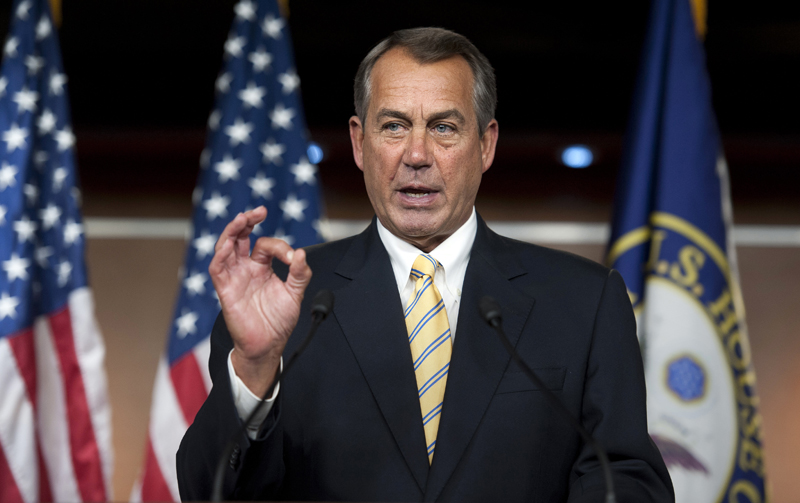At his weekly Capitol briefing Thursday, House Speaker John Boehner explained why he and other GOP principals are reluctant to return to budget negotiations with Senate Democrats via traditional legislative channels.
As we noted yesterday, it comes down in part to wanting to avoid opening the House floor to votes on politically contentious Democratic legislative measures.
“I think you also know that under rules, if you appoint conferees and after 20 legislative days there’s no agreement, the minority has the right to offer motions to instruct, which become politically motivated bombs that show up on the House floor,” Boehner said. “I just want to be frank with you: we’re following what I would describe as regular order. These informal conversations are under way. That’s the way it should work.”
The informal conversations, between House Budget Committee Chair Paul Ryan (R-WI) and Senate Budget Committee Chair Patty Murray (D-WA) aren’t uncommon. As one House GOP leadership aide points out, the last time the House and Senate unified their budgets was May 2009, under Speaker Nancy Pelosi (D-CA), after plenty of private negotiating.
But that’s not the regular order Boehner has been demanding since shortly after President Obama’s re-election.
Democrats in both the House and Senate enjoy watching the GOP struggle to blur the difference between its simultaneous but incompatible demands for regular order and informal negotiations. Republicans’ procedural conundrum, Dems recognize, stems from a desire to avoid a budget deal that includes higher taxes without exacerbating the growing perception that they’re incapable of compromise.
So Democrats are pressing the issue.
“[W]e’re overdue,” Pelosi told reporters Thursday. “House Democratic Leadership has sent a letter to Speaker Boehner asking him to appoint conferees. The time has come; it’s long overdue. We want a full, open, transparent discussion of priorities, that allows the public to make a judgement about whose priorities they prefer.”
But Democrats also sense that Republicans are attempting to slow walk the budget process so that they can link it to some separate but immovable deadline. If the 2009 timeline mentioned above is any guide, that could mean we’ll be waiting until May — which happens to be when the government will hit the debt limit once again.






